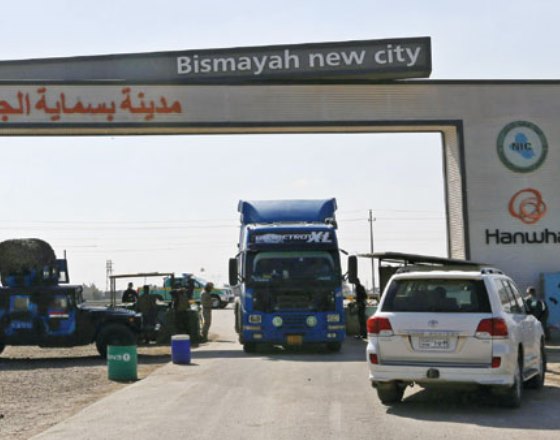
The International Monetary Fund plans to soon send teams to Jordan and Iraq for talks that may lead to more aid for the two countries, which are grappling with the economic fallout of Mideast conflicts.
Jordan has asked for another loan programme and the fund hopes to conclude talks with the kingdom in the first quarter of next year, Masood Ahmed, director of the Middle East and Central Asia department at the IMF, said in an interview in Dubai. The fund plans to send a team to Iraq next month to negotiate a “staff-monitored program,” which would help unlock more aid for an economy contending with lower oil prices and a war with Islamic State (IS) militants.
While the Iraq programme doesn’t involve immediate IMF assistance, it will help create a framework to tackle its mounting challenges, according to Ahmed. The plan would start in 2016 and could “then lay the basis for Iraq to come to the IMF for a financing program later in the year if things go well,” he said.
Iraq is struggling to finance a war with IS extremists who have seized large swaths of territory in Opec’s second-biggest producer at a time when plunging oil prices are squeezing government revenue. The IMF has provided $1.25bn in emergency assistance to plug a budget deficit it expects to reach 23% of Iraq’s economic output this year.
The programme under discussion would help Iraq receive aid from lenders, including the World Bank, and reassure prospective investors, Ahmed said. That would pave the way for the country to “go back to the market in the first half of next year to raise more financing,” he said.
Iraq’s economic crisis has battered its international bonds this year. The yield on the $2.7bn Eurobonds due in 2028 has surged more than 160 basis points, or 1.6 percentage points, to 9.502% on Tuesday, according to data compiled by Bloomberg.
Iraq’s economy is expected to record zero growth this year following a 2.1% contraction in 2014, according to IMF estimates. While the central bank has said the crisis doesn’t pose an immediate risk to the dinar’s dollar peg, governor Ali Mohsen Ismail said in September he could “marginally change the exchange rate” to boost government revenue.
The IMF believes a devaluation doesn’t “make much economic sense,” Ahmed said. “If you look at the spending, a large share of it is foreign-currency denominated, so devaluation will provide little relief to finance the budget deficit and would have the additional risk of triggering a wage-price spiral.”
The IMF has expanded assistance to the Middle East since the Arab Spring in 2011, including to Tunisia and Jordan, which is struggling to cope with an influx of refugees from conflicts in Iraq and Syria. The kingdom has already received about $2bn under an IMF loan programme, helping the country to narrow its budget deficit to about 3% of gross domestic product this year, according to the fund’s estimates.
“We don’t have a number on it yet, but we do have a team that is going out there in the next few weeks to try and begin discussions on a program that the IMF could support over the next three years,” Ahmed said.
original source: http://www.gulf-times.com/eco.-bus.%20news/256/details/460212/imf-is-moving-closer-to-rise-in-aid-to-iraq,-jordan
